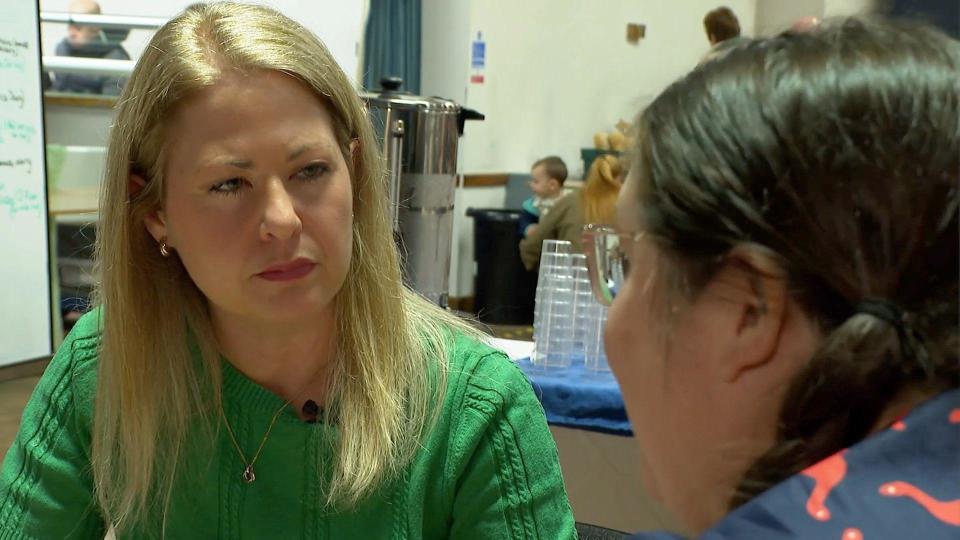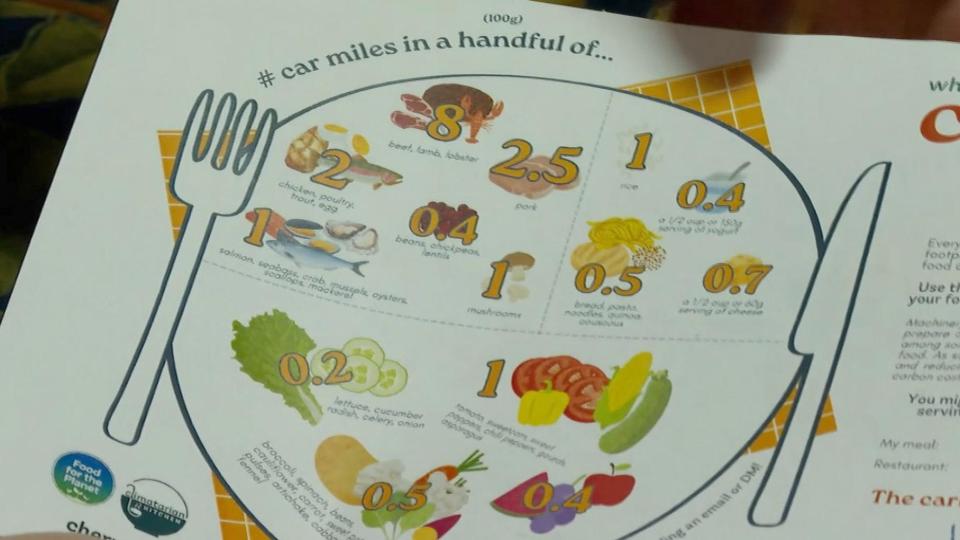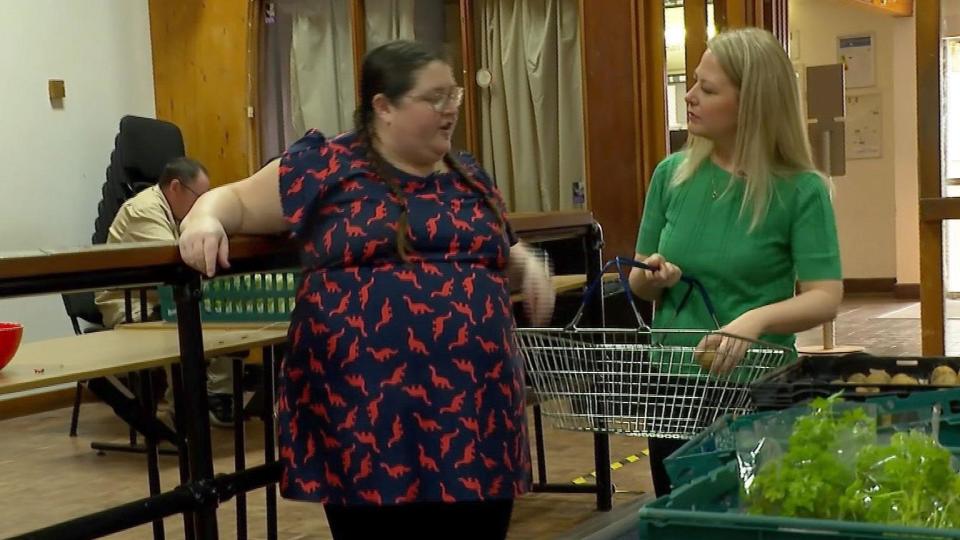How to help reduce climate change by what you eat
Getting to net zero isn't just about cutting fossil fuels.
Research from Oxford University found that to meet tough climate targets there’ll need to be a dramatic shift in what we eat, how much we eat, how it's produced and how much is wasted.
Food production accounts for up to 30% of global greenhouse gas emissions.
But switching from beef and lamb to pork and poultry could dramatically cut your carbon footprint because they produce less methane.
The greenhouse gas is short-lived but has far greater heat-trapping potential than carbon dioxide.

I went along to the Cherwell Collective in Kidlington, Oxfordshire, to find about the climatarian diet.
The not-for-profit organisation is dedicated to preventing surplus food from going to landfill.
As well as a weekly food larder, they run Climatarian Kitchen, which turns leftovers into low-carbon meals.

The team work out the carbon footprint of each ingredient then convert it into the equivalent car miles.
For example, tomatoes and sweetcorn are equal to one car mile, while beef and lamb are worth eight car miles per 100g.
The aim is to produce meals that are about four or five car miles by eating predominantly plant-based produce.
Miles can quickly add up if you choose to eat meat.
A hamburger, for example, would be worth 10 car miles once you account for the beef patty, tomatoes, lettuce, cheese, the bun.
You can reduce that by using half the amount of beef mince and mixing it with chopped up mushrooms instead.

The volunteers would like to see carbon labelling on packaging to help consumers make informed decisions about what they eat and the impact it has on the environment.
A Defra spokesperson said: “Achieving the net zero target is a priority for this government, and in our Food Strategy we committed to developing a methodology for voluntary eco-labelling, which would help improve transparency and move businesses and consumers to more sustainable choices.
“We are also clear that while food choices can have an impact on greenhouse gas emissions, well-managed livestock also provide environmental benefits such as supporting biodiversity, protecting the character of the countryside and generating important income for rural communities.”
Top five tips for a climatarian diet by Dr Emily Connally, founder of Cherwell Collective:
Eat less but better meat. Swap out half your meat in a recipe with veggies or replace beef or lamb with chicken, fish or pork if possible
Eat seasonally and store efficiently (thinking about where your food came from and how it got to you, and what is produced locally might need greenhouses so it isn't seasonal and what appears fresh might need airplanes so it isn't environmentally friendly)
Reduce waste. Shop surplus first. Look to larders and fridges and reduced sections in shops to plan your meals, then top up whatever else you need. We can inform supply chains by reducing waste as the first priority.
Think smaller (portion sizes at restaurants are 2-3 times the recommended, swap to smaller animals for your meat sources, smaller appliances are more efficient, make quick pickles to extend the life of a few odd vegetable ends rather than making giant batches of pickles you won't eat)
Be flexible. Remember this is a journey, and the vast majority of the UK eat meat so a little change goes a long way if we all decide to make these changes together
Follow BBC South on Facebook, X (Twitter), or Instagram. Send your story ideas to south.newsonline@bbc.co.uk or via WhatsApp on 0808 100 2240.

